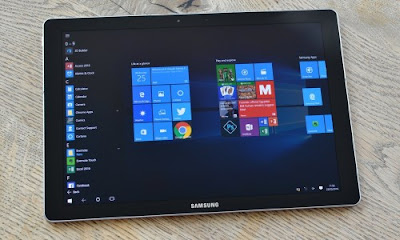Windows Users Are Unhappy with Intrusive Adverts
https://sp-security.blogspot.com/2017/04/windows-users-are-unhappy-with.html
Windows
10 users didn’t like the way Microsoft inserted adverts for its
OneDrive cloud service directly into the File Explorer. These adverts
show up when you are trying to manage files in a dedicated pane at the
top of the Quick Access view within File Explorer. Microsoft explained
that such ads are part of the so-called “sync provider notifications” in
the new Windows 10 Creators Update. It is beta testing at the moment
and is scheduled to roll out to all users in 2017.
 In
the meantime, Microsoft explained that users could opt out of receiving
such ads and said that the new tips notifications within the File
Explorer were intended to help users by providing quick and easy
information to enhance their experience. However, many users don’t find
it a “helpful tip”, but call them “disgraceful” and “disgusting”
instead.
In
the meantime, Microsoft explained that users could opt out of receiving
such ads and said that the new tips notifications within the File
Explorer were intended to help users by providing quick and easy
information to enhance their experience. However, many users don’t find
it a “helpful tip”, but call them “disgraceful” and “disgusting”
instead.
The industry experts remind that this was not the first time the software maker had displayed ads within its OS: before upgrading to Windows 10, it injected nagging adverts and notifications into Windows 7 and 8. Moreover, Microsoft was forced to pay out compensation over automatic Windows 10 installs and even tried to pay users to switch from Google’s Chrome or Mozilla’s Firefox to its Edge browser.
The critics argue that Windows 10 is also permeated with adverts masquerading as “helpful tips” – the Start menu is plastered with pinned ads, randomly injected into the program list. Besides, the ads pop up asking about Office 365 and tell you about OneDrive when you open File Explorer or accidentally click on the OneDrive link, let alone when you highlight the OneDrive link with the keyboard. Although many of these adverts can indeed be turned off, they’re all on by default, which many users consider “pretty ridiculous.”
Microsoft assured that you could turn off the advertisement of Edge, which may pop up when you use other web browsers, by disabling the “get tips, tricks and suggestions as you use Windows” option in the notification settings. If you want to turn off the OneDrive adverts within File Explorer, you need to turn off “Show sync provider notifications”, which is not really easy to find: you will have to dig through 4 successive menus within the Advanced Settings of File Explorer’s Folder Options.
Posted by:

The industry experts remind that this was not the first time the software maker had displayed ads within its OS: before upgrading to Windows 10, it injected nagging adverts and notifications into Windows 7 and 8. Moreover, Microsoft was forced to pay out compensation over automatic Windows 10 installs and even tried to pay users to switch from Google’s Chrome or Mozilla’s Firefox to its Edge browser.
The critics argue that Windows 10 is also permeated with adverts masquerading as “helpful tips” – the Start menu is plastered with pinned ads, randomly injected into the program list. Besides, the ads pop up asking about Office 365 and tell you about OneDrive when you open File Explorer or accidentally click on the OneDrive link, let alone when you highlight the OneDrive link with the keyboard. Although many of these adverts can indeed be turned off, they’re all on by default, which many users consider “pretty ridiculous.”
Microsoft assured that you could turn off the advertisement of Edge, which may pop up when you use other web browsers, by disabling the “get tips, tricks and suggestions as you use Windows” option in the notification settings. If you want to turn off the OneDrive adverts within File Explorer, you need to turn off “Show sync provider notifications”, which is not really easy to find: you will have to dig through 4 successive menus within the Advanced Settings of File Explorer’s Folder Options.
Posted by:
SaM




